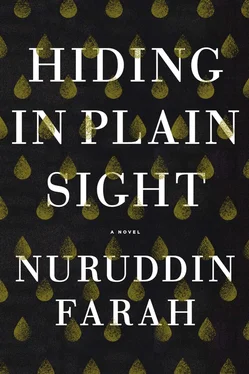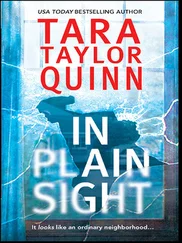“Ten o’clock.”
“See you at ten.”
Padmini calls room service and orders a club sandwich for them to share and a glass of milk for Valerie instead of her usual sundowner. Then they sleep until just past nine.
They rise and shower in turn, and then Valerie calls the concierge to order a taxi for ten-fifteen. “Let’s get there half an hour late,” she says to Padmini by way of explanation. “We don’t wish to appear too eager, right?”
“Okay by me,” says Padmini. But she can see that Valerie is wide-eyed with anticipation.
“We’re going to enjoy ourselves, you’ll see.”
Padmini is not so sure about that. But she is glad for an excuse to get out of their stifling, expensive room.
“This calls for a celebration, I’d say.” Valerie brings out a bottle of chilled champagne, and Padmini, conceding defeat, gets two glasses. Valerie opens the bottle and Padmini puts out some French cheese, her favorite, on a low table, along with a baguette wrapped in the front page of The Independent and a stash of white and dark chocolates.
As they eat and drink, Padmini reads a news story to Valerie from the front page of The Independent , which is a week old. The article cites a letter from an eight-year-old English girl to a British MP who was quoted as saying that gay couples are not fit to raise children. In her letter, the girl describes herself as the happy daughter of a lesbian couple and tells the MP that she is “perfectly fine… a real child with two mothers, who are real people with real feelings.” The girl closes by writing, “You can be brought up well by anyone who loves and cares for you and who makes sure that you are happy.”
The paper has withheld the identity of the girl and her parents. Padmini and Val now debate the merits of this. Padmini questions whether it’s right to withhold the name of the girl while publishing the MP’s. Valerie retorts that no newspaper in Britain would dare publish the name of a minor without the approval of a parent or guardian. “She could be bullied at school or worse. And maybe it’s out of deference to the mothers’ feelings.”
Padmini asks, “Do you think they care what others might say about them?”
“Their situation is unlike ours.”
“How so?”
“We are in Africa.”
“And your children are not only half African but also Somali and Muslim,” says Padmini. “Somalis are bigots, every single one of them. They would delight in burning us at the stake. They see us as deviants, worse than devil worshippers, and they believe we deserve commensurate punishments.”
“And you think the West is so much better?”
“There is no depth to the commitment, despite the laws on the books. But at least we can go to sleep at night confident that we won’t be arrested just because we are gay.”
Valerie says, “You know, Pad, Aar came to accept our relationship in the fullness of time, and so did my mother, especially after knowing what my father did to me. But not your parents.”
Padmini says, “And Bella?”
“Neither she nor Aar is your typical Somali or typical African,” Valerie says. “I think it’s because their mother was ahead of her time.”
Carried away by the prevailing positive mood, Valerie wonders aloud, “I wonder whether we can persuade Salif and Dahaba to throw in their lot with ours.”
“You mean, come with us to India?”
“Why not?”
“Who knows?” says Padmini. “The idea might excite them. The subcontinent is a much bigger world than either of them has known. Don’t they say, ‘See the elephant; see the world’?”
“And if living in India doesn’t much take their fancy, we should be open to the idea of moving to Britain. You wouldn’t mind if we did that?” Valerie asks.
“Not if it is the only option open to us,” says Padmini. Her straying hand touches Valerie’s cheek, and before long, they are making love in a way they haven’t for a long time. Then they go down to the waiting taxi and head off into the night to join Ulrika.
—
From the outside, the nightclub looks uninviting. The building is composed of a ground floor constructed along utilitarian lines that can accommodate any use: workshop, fitness center, or a place of worship. Inside, however, a lick of paint and a raised ceiling have transformed it. At one end of the floor, there is a bandstand where a group of women is playing. At the other is a long bar with stools and tables and chairs, for which there is an extra charge. Tonight all the tables are taken, and the dance floor is full.
As soon as Padmini spots Ulrika sitting in her own special corner, a little away from the other tables and farthest from the music, she recognizes her as the big-boned but well-honed woman she remembers. She also remembers her suddenly as the woman who made a pass at her the other night and had the gall to call her the “brown beauty.” But she lets Valerie lead her by the hand through the melee of drinkers and dancers and busy waitresses. When they get to Ulrika’s table, she welcomes them with a hug and kiss, and then introduces them to two African women who are sitting with her. What a promiscuous woman you are, Ulrika, thinks Padmini.
Ulrika explains that the owner of the club is a Kenyan, a former lover of hers, and Ulrika was one of the first investors in the venture, which has been a roaring success. The special table is her perch. She turns to Valerie. “Dammit, I forgot to bring the two books I promised you.”
Valerie looks as if she can’t for the life of her remember anything about any books, but she says, “No worries. Maybe next time.” But Padmini says, “What books?”
“Jeanette Winterson’s Why Be Happy When You Could Be Normal? and Jackie Kay’s most recent novel, which is set in part in Nigeria, where her birth father hails from.” Ulrika flags down a waitress and asks what they want to drink. “You are my guests,” she says, with the same Teutonic certitude Padmini heard on the phone. “The first round is on me.”
“What is a giant German woman doing in Kenya?” Valerie asks. “I am curious.”
Ulrika tells them that she makes her living as a masseuse. Well over six feet tall, with a laugh to match, she also has a larger-than-life generosity of spirit that leaves her open to new ideas and new ways of having fun. Her business is booming too. It’s adjacent to her home, in several thatched huts, each with its own Jacuzzi. There’s also a swimming pool of Olympic proportions, a bar, and a small gym. At the extreme end of these structures is the well-appointed apartment where she lives, often alone.
“How do you mean, often alone?” Valerie asks.
“Sometimes I have guests, family, friends. And at other times, I entertain my lovers.”
She is close to her parents, she says; they helped her to establish her business.
“How often do they visit?”
“Twice a year,” Ulrika answers. “They spend the whole European winter here.”
“And who helps you run it?”
Ulrika tells them she employs two young men, one from Cape Town and the other from Sydney, along with several African women, for the running of the business, plus a couple more that she has trained as masseuses. She adds, “I grew up in South Africa, where my father was West Germany’s consul.” She explains that her father always insisted on sending her to the same schools as the locals and not, say, to the German school in Cape Town, so Ulrika has always felt more comfortable in the company of Africans.
“And whom do you cater to?” asks Valerie.
Padmini can see that the idea of Ulrika’s working on her body turns Valerie on, and, sure enough, Valerie says, “Can I book a session?”
The band launches into a cover of a popular song by a Congolese group, and the two Africans sitting next to Ulrika invite Padmini to dance with them. By the time they return to the table, Ulrika and Valerie are deep in conversation.
Читать дальше












